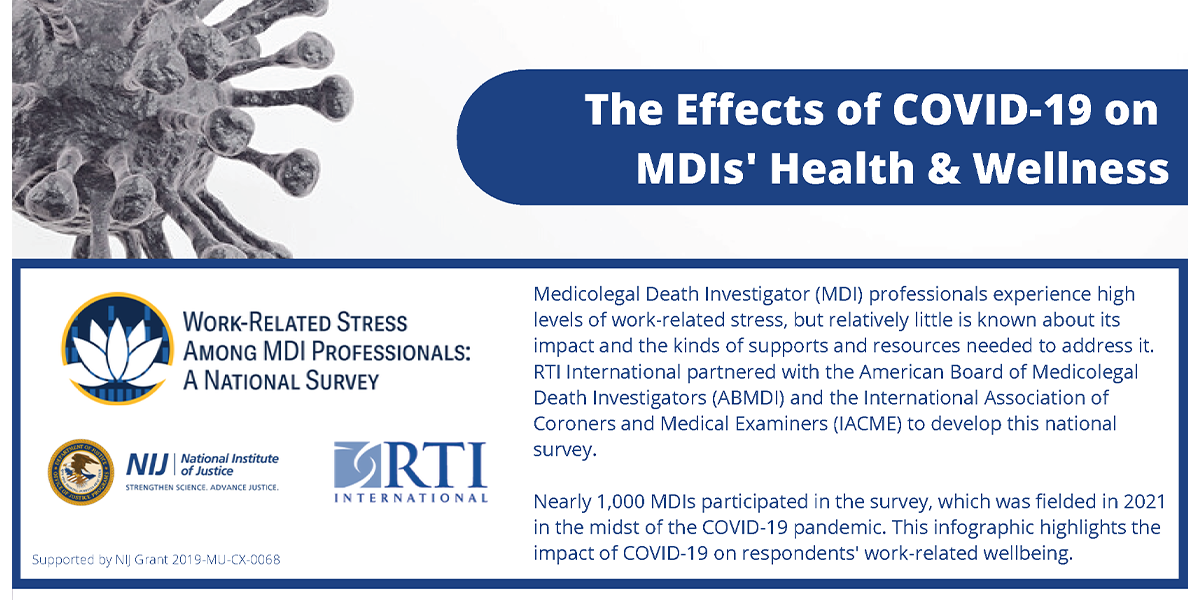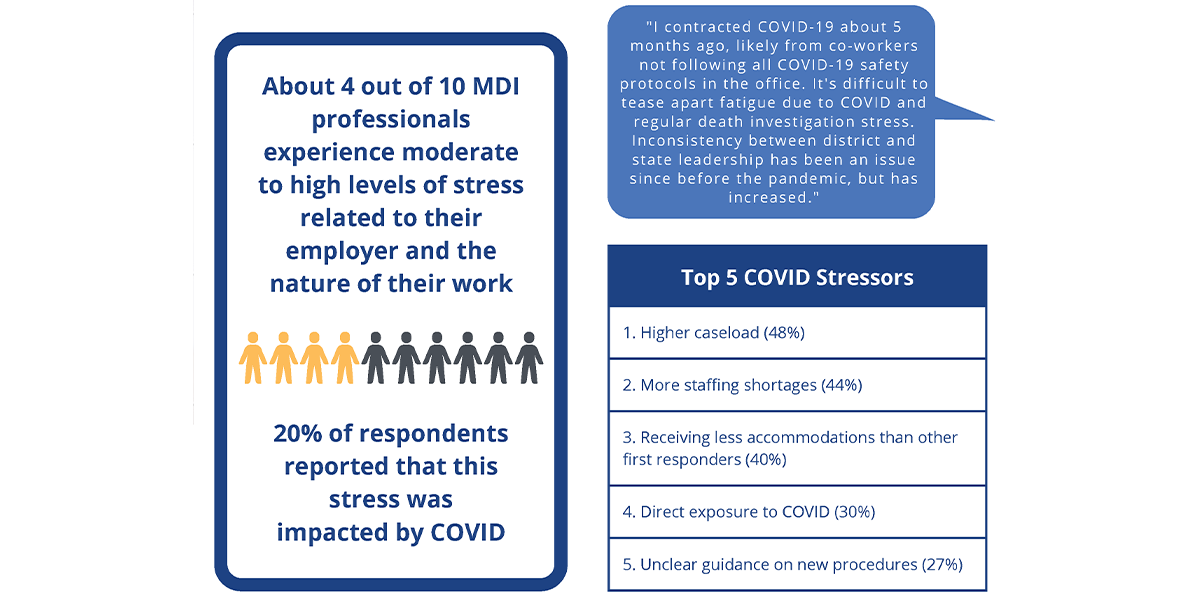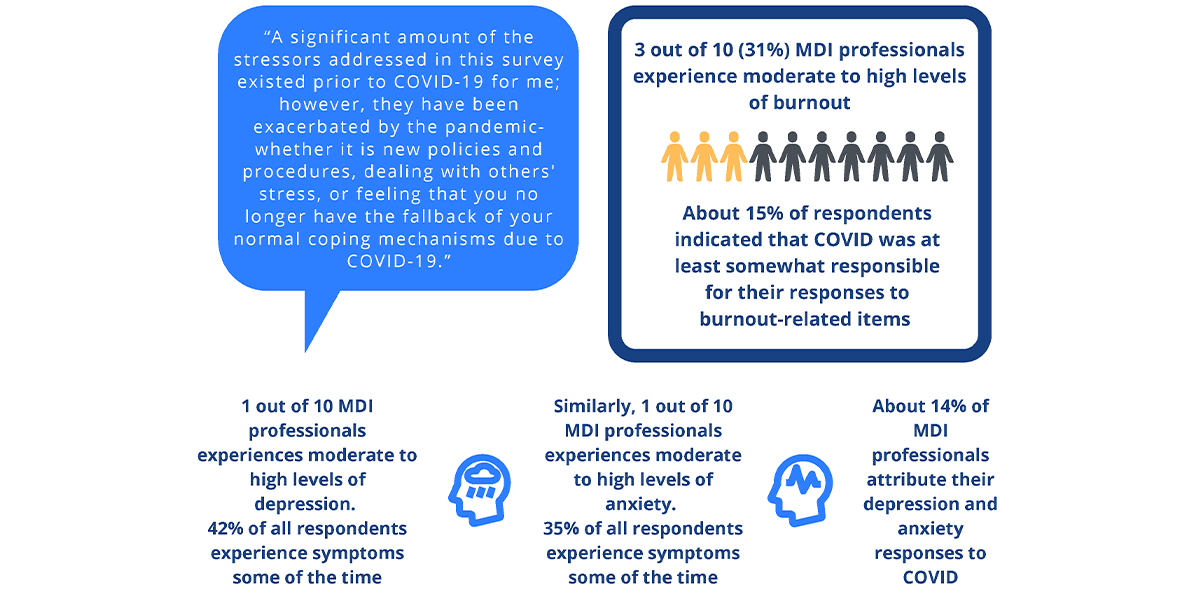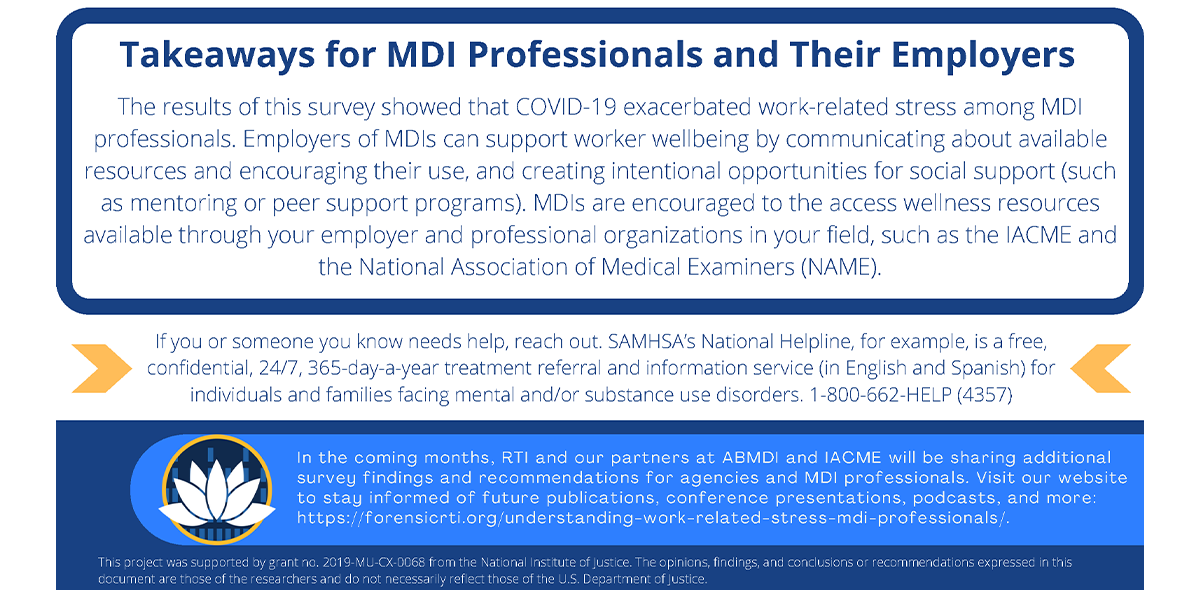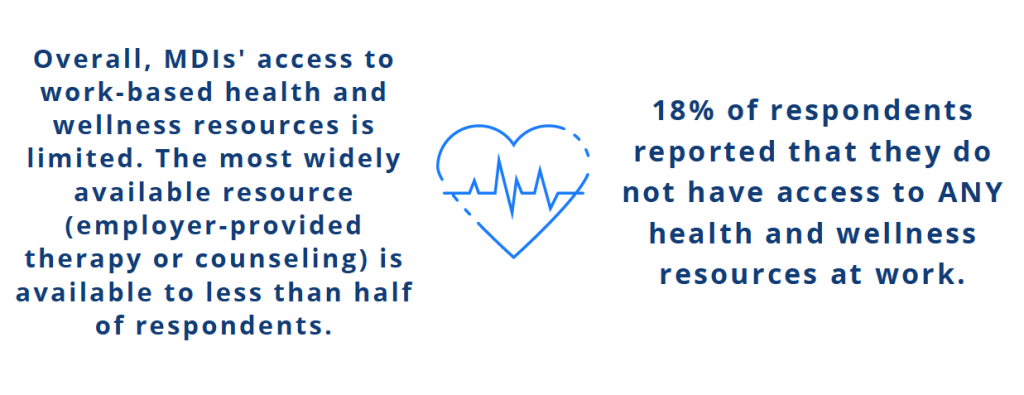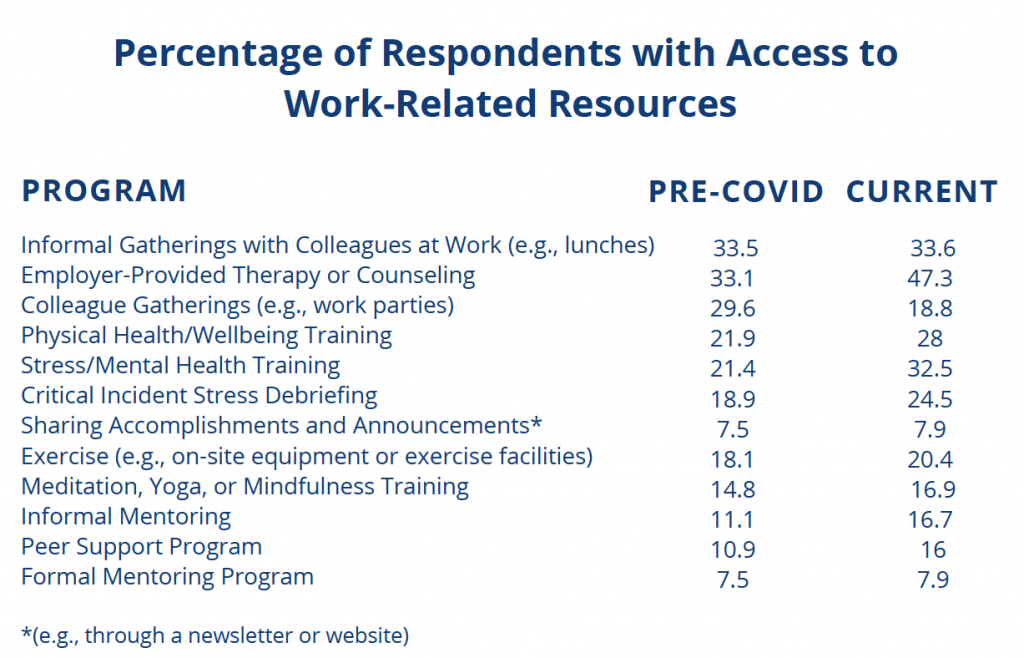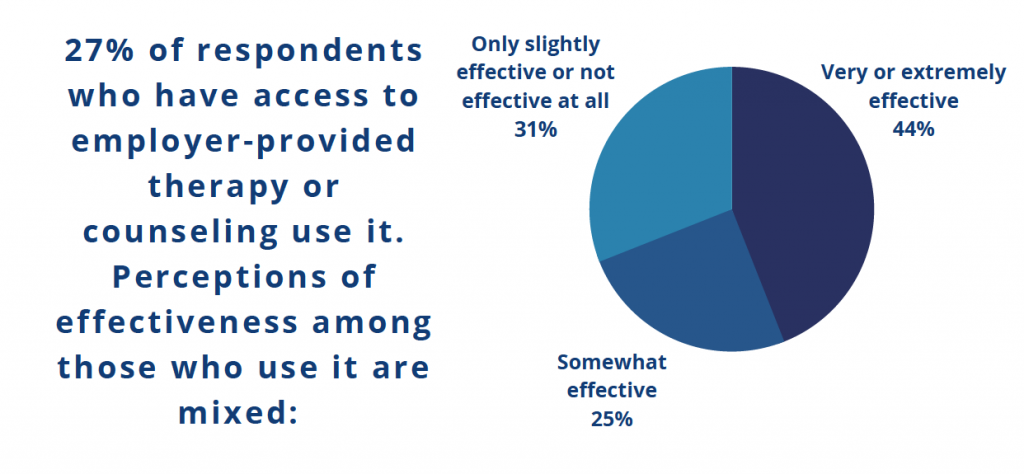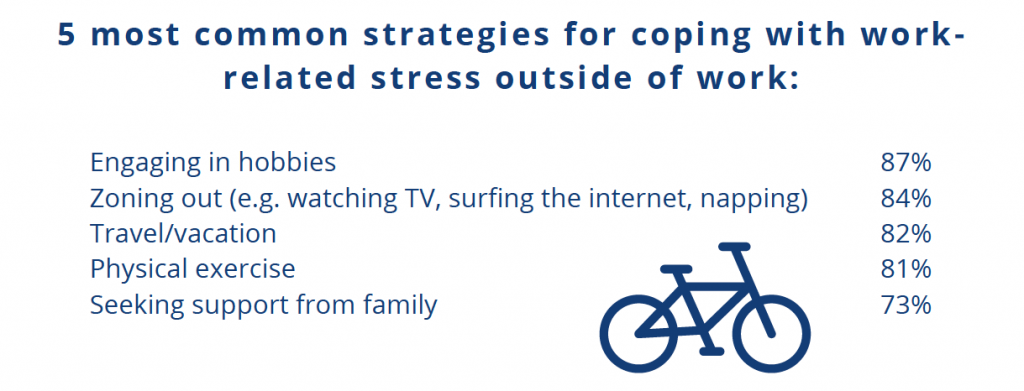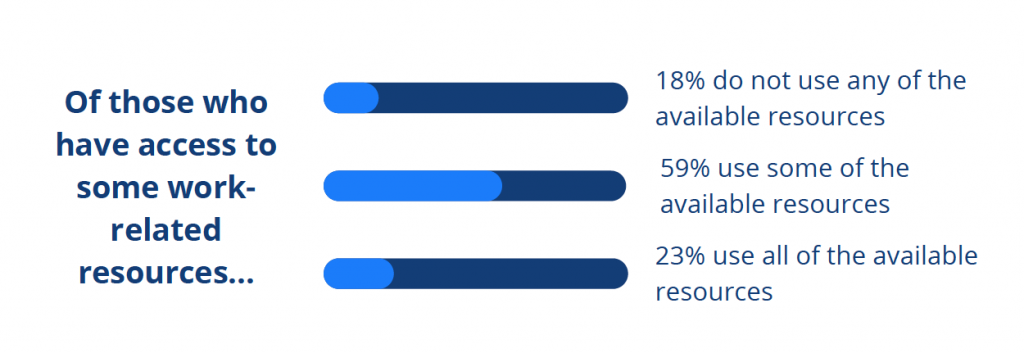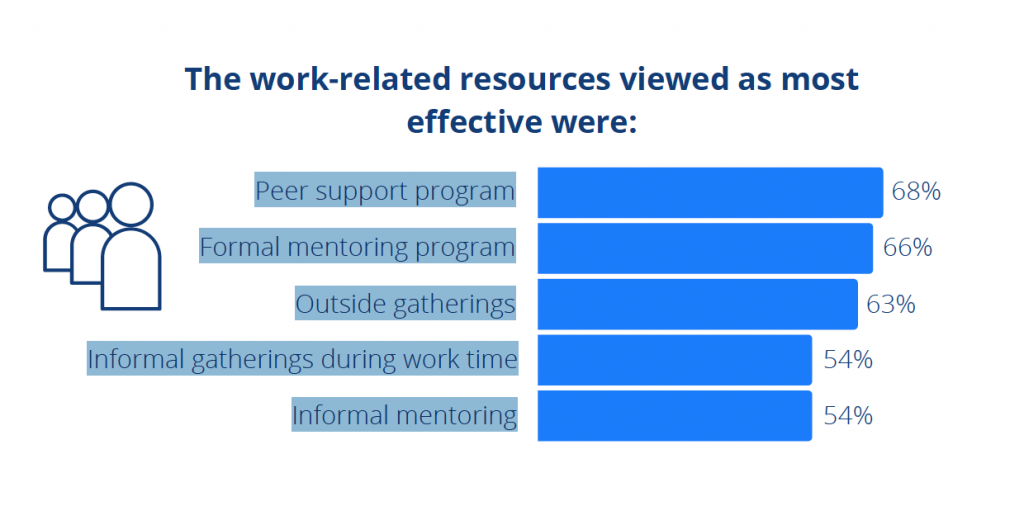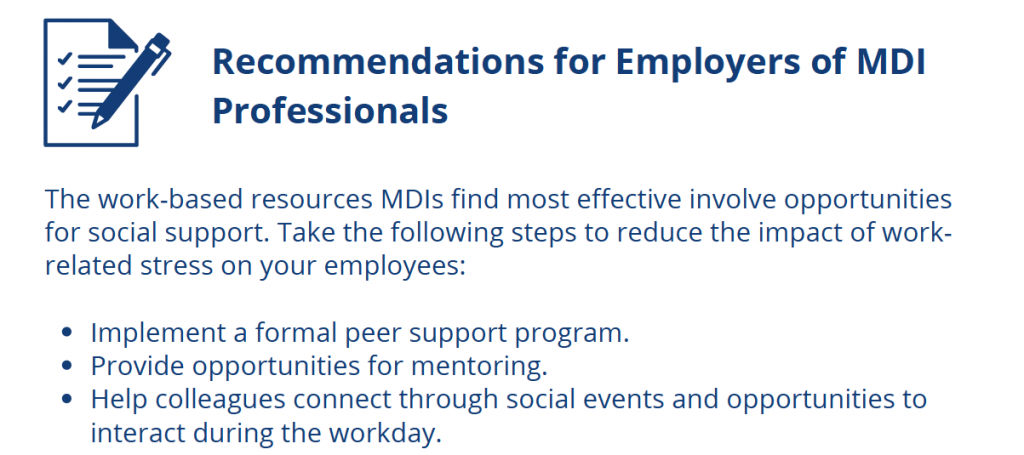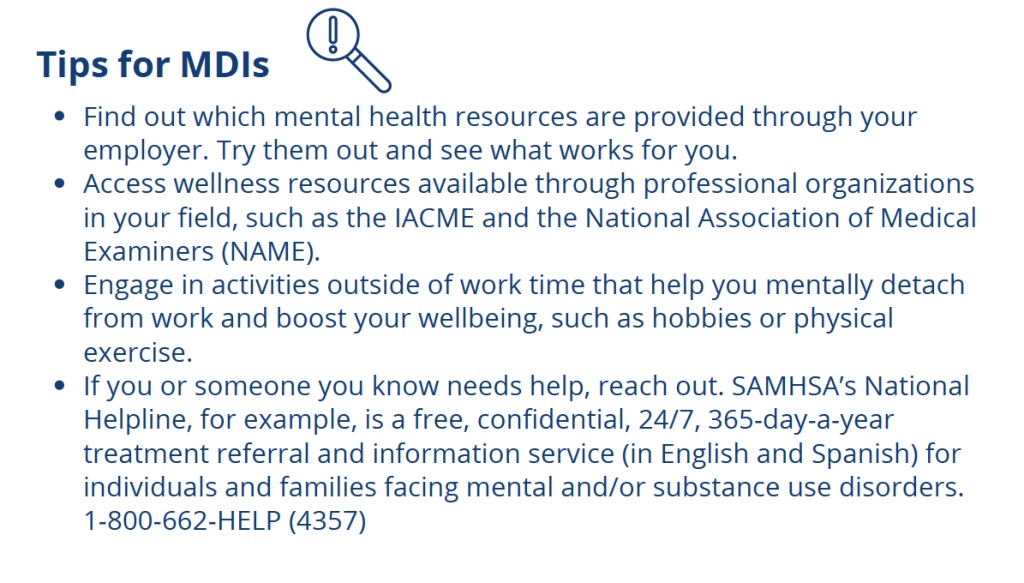 Overview
Overview
Medicolegal death investigators (MDIs) experience highly stressful and emotional situations daily with what they see, hear, and document. The duties of an MDI dictate that they investigate death scenes, examine and take pictures of the deceased, collect relevant samples and evidence, interview family members, friends, and bystanders, prepare initial reports, and deliver information and personal effects to families, among many other tasks.
Funded by the National Institute of Justice, this project aims to increase knowledge about work-related stress, stress management, and overall mental health and well-being across individuals working in the field of Medicolegal Death Investigations (MDIs). This effort is being conducted in 2 phases: 1) a national survey of MDI professionals and 2) an impact study. In July 2021, we completed the Phase 1, which was a first survey of its kind to examine the breadth and frequency of exposure to stressful and traumatic events, and outcomes in this workforce. Our partners, the American Board of Medicolegal Death Investigators (ABMDI) and The International Association of Coroners & Medical Examiners (IACME) were instrumental in assisting us with reaching as many MDIs across the United States as possible. The project team began developing Phase 2 in August 2021, which includes an impact study to collect daily self-report measures and biometric data from MDIs over a 12-week period to learn more about the types of activities that impact stress among MDIs.
The critical information collected in this study will result in a comprehensive data set that will be used to inform MDIs and their employing organization of how to better understand and support health and wellness, improve organizational outcomes and personal wellbeing, and inform future programs and preventative training to reduce and alleviate work-related stressors.
The Effects of COVID-19 on MDIs’ Health & Wellness Infographic
Expert Bios:
Click on the dots below to scroll through experts.
Julia Brinton
Julia Brinton is a research public health analyst in RTI’s Center for Safety, Victimization, and Resilience within RTI’s Applied Justice Research Division. Ms. Brinton specializes in technical assistance, data collection, evaluation, and management of complex projects in the areas of domestic violence, sexual assault, school-based research, and law enforcement health and wellness. On the current project, Ms. Brinton led the instrumentation and programming of the national MDI survey and leads the development of the MDI mobile application and impact study.
Peyton Attaway
Peyton Attaway is a research analyst in the Center for Policing Research and Investigative Sciences in RTI’s Applied Justice Research Division. She specializes in the intersection of public health and policing, substance use, and sexual assault reform. Her research interests include health, social, and justice issues in the context of substance use; violence against women; vicarious trauma in public safety; law enforcement coordination with public health; and police-community relations. On this project, Peyton operates as the project manager and assists in dissemination activities.
Crystal Daye
Crystal Daye is a member of our Investigative Science Research Program, part of the Center for Police Research and Investigative Science. She specializes in research on policing, sexual assault case reform and forensics. Ms. Daye serves as site liaison manager for the National Sexual Assault Kit Initiative Training and Technical Assistance (SAKI TTA) project, which is a Bureau of Justice Assistance funded effort that assists jurisdictions across the United States with creating a coordinated mutli-disciplinary response sexual assault investigation reform, including addressing evidence found in sexual assault kits (SAKs) that have never been submitted to a crime laboratory and supporting the investigation and prosecution of these cases. She has contributed to many other projects focused on promoting up-to-date technology and best practices among police officers, forensic examiners, sexual assault nurse examiners, victim advocates, and other professionals in the criminal justice system. On this project, Crystal led the dissemination of the national survey and leads the development of the mobile application videos, as well as partner interactions for the purposes of the impact study.
Jennifer Rineer
Jennifer Rineer is an expert in the health, well-being, and performance of employees and organizations. As a program manager and research psychologist in our Center for Policing Research and Investigative Science, she applies her academic and applied experience in industrial and organizational psychology and occupational health to workplace and workforce surveys, qualitative studies, employee trainings, evaluations, and experimental research in criminal legal contexts. Her research focuses on worker health, job-related stress, diversity and inclusion, organizational effectiveness, and related topics. On this project, Jenn Rineer is the Principal Investigator and lead all efforts on this project.
Amanda Young
A public health analyst in RTI’s Policing Research Program, Amanda Young previously worked in the Burlington, NC, police department, where she assisted victims of crimes in navigating the court system and finding available community services. At RTI, Ms. Young is a site liaison for the Sexual Assault Kit Initiative (SAKI) Training and Technical Assistance (TTA) team, where she interacts with each of her assigned sites in regard to data collection, training, and technical assistance needs; assists with logistics; and provides key guidance in navigating sites through their SAKI goals. On this project, Amanda assists in dissemination activities.
Paige Presler-Jur
Paige Presler-Jur is both a research scientist and a policy analyst. With a diverse academic background in engineering, environmental science, and public health, Ms. Presler-Jur works to understand the challenges and barriers communities encounter while trying to solve problems in criminal justice and public health contexts. Currently, Ms. Presler-Jur is focused on building bridges across disciplines to provide improved services and support to victims of sexual assault and to facilitate effective responses to illicit substance use to improve access to treatment and recovery services. On this project, Paige led the focus group implementation and assists in dissemination activities.
Sean Wire
Sean Wire is a research public health analyst with RTI International’s Center for Policing Research and Investigative Science with more than 7 years of experience in quantitative data analysis, research design, and research management. Mr. Wire previously supported the Center for Evidence-Based Crime Policy at George Mason University as a graduate researcher. In that role, he developed, conducted, and managed research grants for both the National Institute on Drug Abuse and the Criminal Investigations and Network Analysis Center at the Department of Homeland Security, with the aim of leveraging data for scientific insights and producing deliverables to inform policy. He is in the final stages of his dissertation for his doctorate in criminology, law, and society. Over his academic career, Mr. Wire has developed expertise in communicating research findings to academic and practitioner audiences through peer reviewed publications, technical reports, and presentations. On this project, Sean operates as the statistical and data analysis task lead.
Donia Slack
Donia Slack is the Director of the Research, Technology, and Evaluation Program (RT&E) in RTI’s Center for Forensic Sciences (CFS). In this role, Ms. Slack leads technology-driven efforts in support of basic and applied research serving the criminal justice and forensic science communities. She maintains a PMP certification and has a Master of Science degree with over 17 years of experience in the forensic DNA community, directing and overseeing programs pertaining to genomic analyses of human, plant, and microbial DNA. On this project, Donia serves in a senior advisory role.
Devin Oxner
Devin Oxner, a public health analyst in the Policing Research Program of the Applied Justice Research Division, conducts and analyzes social sciences research. Ms. Oxner began her RTI career in Human Resources and has an institute-wide perspective. She is interested in helping to implement best practices and diversity and inclusion initiatives for hiring in the division, and her research interests include substance use and misuse, sexual violence response, discrimination and bias, and mental health and wellbeing. On this project, Devin assists in dissemination activities.
Kelly Keyes
Kelly Keyes joined RTI in 2021 as a Research Forensic Scientist III in the Center for Forensic Sciences, Research and Implementation Group. Prior to joining RTI she had 24 years of experience working as a medicolegal death investigator (MDI) in a large metropolitan coroner’s office at the Orange County Sheriff Coroner Department, in all divisions of the office, including over 10 years as a supervising Investigator. Kelly is a Board-certified Medicolegal Death Investigation with the American Board of Medicolegal Death Investigators (D-ABMDI). Ms. Keyes has experience training and working with MDIs from other offices through her work on the executive committee of the International Association of Coroner and medical Examiners (IACME) where she is currently the Chair of the Board of Directors. She is also a member of the National Association of Medical Examiners (NAME), the American Academy of Forensic Sciences (AAFS), the California State Coroner Association (CSCA) and an accreditation auditor of MDI offices through IACME. Ms. Keyes has served on the MDI subcommittee of the National Institute of Standards and Technology (NIST) Organization of Scientific Area Committees (OSAC) since its inception and currently is the Chair of that group. On this project, Kelly operates as a subject matter expert.
Katherine Pope
Kat Pope is the Regional Program Specialist at RTI International for the mid-Atlantic region (MD, DE, DC, VA, NJ). Investigating missing and unidentified cold cases is a top priority in Kat’s career, which began after receiving a 1-year postgraduate fellowship at the Department of Defense POW/Missing Personnel Office (now called the Defense POW/MIA Accounting Agency) to work as a Casualty Analyst in the WWII Section. Over the next 10 years, she worked as a Forensic Investigator and Anthropologist in New York, New Jersey, Maryland, and Delaware medical examiners’ offices. She also volunteered with Operation Identification excavating unidentified migrants on the Texas/Mexico border. On this project, Kat operates as a subject matter expert.
Lauren Mangum
Lauren Mangum, a multimedia design specialist in the Center for Forensic Science (CFS), seeks to better disseminate useful information to criminal justice practitioners and researchers. Ms. Mangum’s primary focus is guiding online and on-site training activities, along with providing graphic support and media production expertise for projects funded by the National Institute of Justice, Bureau of Justice Assistance, and Bureau of Justice Statistics. She has applied her skills as a video editor, director of photography, graphics artist, and audio designer to educational videos, social media campaigns, roll call videos, roleplay modules, and podcasts. Ms. Mangum creates and maintains courses deployed on learning management systems (LMS), and she ensures 508-compliant multimedia for increased learner accessibility. She oversees scalable live online learning events for large audiences and has developed cost-effective on-site and virtual event management platforms. She also drafts informational flyers, event signage, infographics, large-scale postcard campaigns, and other tailored marketing materials. Ms. Mangum is the producer of the Just Science podcast, which is designed to highlight key leaders in forensic science research, practice, and innovation. The podcast has released over 100 episodes and has been listened to more than 200,000 times. On this project, Lauren operates as the multimedia and dissemination task lead.
Infographics
What Supports Are Available to MDI Professionals for Managing Work Stress?
All Infographics
Click on the links below to view more.
Timeline
- April-July 2021: National Survey
- Fall 2021: Stress-Reduction Impact Study Development
- Early 2022: Stress-Reduction Impact Study Implementation
Dissemination or Upcoming Events
Exploring Workplace Stress Among Medicolegal Death Investigators and Law Enforcement Officers
This panel presentation focused on findings from RTI’s Understanding Work-Related Stress Among MDI Professionals: A National Survey project, as well as real-life experience from two MDI professionals. Additionally, law enforcement representatives shared their experience establishing trainings and programs to support officer health and wellness. This session was presented at RTI International’s 7th annual Policing Symposium held virtually on March 9-10, 2022.
Just Science Podcast Released October 22, 2021
In the first episode of our Workforce Resiliency season, Just Science sat down with Dr. Jennifer Rineer, a program manager and research psychologist in RTI International’s Center for Policing Research and Investigative Science, and Kelly Keyes, a research forensic scientist in RTI’s Center for Forensic Sciences, to discuss workforce resiliency among medicolegal death investigators. This episode of Just Science is funded by the National Institute of Justice’s Forensic Technology Center of Excellence [Award 2016-MU-BX-K110].
Funding Support
This survey effort is part of a project led by RTI International titled, Understanding Work-Related Stress among Medicolegal Death Professionals: A National Survey and Mixed-Methods Impact Study, and is funded by the National Institute of Justice (Grant 2019-MU-CX-0068).


